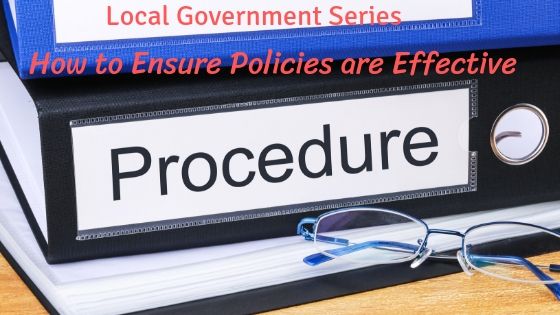Why aren’t local governments following their own procurement policies and procedures? That’s the question raised by a recent audit of eight WA local councils.
The audit found that while the local government bodies have procurement procedures and policies in place, many of them aren’t consistently or effectively following them.
Here are some examples.
Two of the eight local governments had purchases that should have gone to tender, according to policy, but did not. Even though it is understood that tendering for high value purchases supports the local governments in their need to understand the market and encourage effective competition for suppliers.
Likewise, in five of the local governments, there were instances of staff who didn’t seek or record quotes in line with their procurement policies. Again, sourcing and recording quotes is important for local governments to ensure open and effective purchasing.
The problem here isn’t that there aren’t effective policies in place – there are. Nor does it come down to poor training; in all cases training was in place to support staff through the procurement process.
So why aren’t staff consistently following procedures?
The audit puts it down to two reasons:
1) Staff don’t fully understand the policy requirements or risks
2) The policy does not meet the local governments’ needs
These are both problems that can occur in any organisation, public or private.
Yet, by not following policies and procedures consistently, the local government is at risk of not achieving true value for money and increasing the potential of corruption in procurement.
What’s the solution?
Here are some ways local governments, and any organisation, can ensure their procurement policies are consistently and effectively followed:
1) Check the purchasing policies are relevant
Are policies and procedures meeting the organisation’s needs? For example, procurement professionals can review policies to make sure that purchasing thresholds and quote requirements are realistic and fit for purpose. If people aren’t following the policies, it’s a clear sign that they are not meeting the needs of the local government.
2) Train staff on a regular basis
Training should cover the policies and requirements, why they are important, and the consequences and risks if they are not followed. Context is essential. What’s more, training should be provided in a structured, regular way.
3) Make policies clear
Use clear, concise and simple language so that staff can understand the policies and procedures, and there is no ambiguity around what should be done. At the same time, offer options to staff where possible. Sometimes procedures that are unnecessarily restrictive may actually prevent effective procurement practices.
Also, provide helpful resources, such as reference forms, templates, checklists and other tools for staff.
4) Identify roles and responsibilities
Eliminate confusion by ensuring everyone knows their individual responsibility when it comes to procurement. Also, ensure staff know who to turn to for help interpreting policies and resolving problems.
5) Ask for feedback
Gain insights and feedback from those using the policies on a daily basis. They will soon tell you if they don’t understand a policy, or don’t believe it is relevant to the organisation.
Learn more
Procurement policies and procedures are only effective if they are followed consistently. Take the right steps to ensure your policies are clear, understood and relevant to your organisation’s needs.
Did you miss any articles in our Local Government Procurement series? Catch up on part one (the problem with conflict of interest) and part two (why local governments need better procurement controls).






